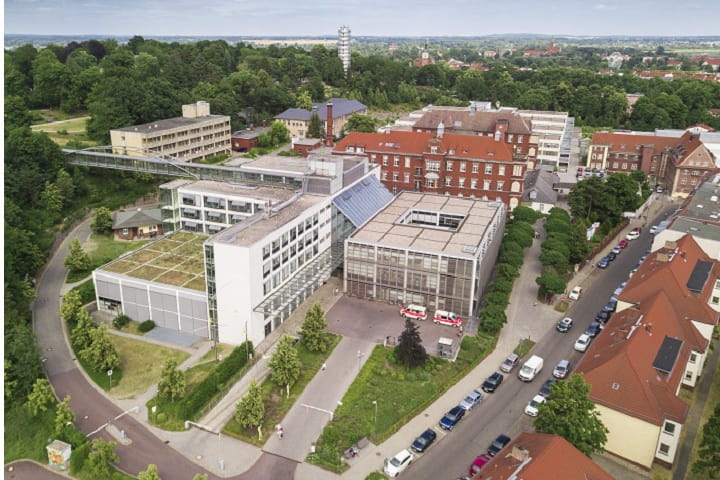Royal Philips, a global leader in health technology, and the University Hospital Brandenburg an der Havel (Brandenburg, Germany) have signed a 10-year strategic partnership to renew and expand the hospital’s diagnostic and therapy options through the delivery of advanced technology solutions. The approximately EUR 18 million agreement includes the supply of diagnostic imaging solutions including ultrasound, MR and mobile X-ray, as well as image-guided therapy suites and patient monitoring solutions. The long-term cooperation will provide University Hospital Brandenburg an der Havel with optimum flexibility and a needs-based approach to technology selection and financing.
We have decided to partner with Philips in order to ensure high-quality, economical medical care for the population of our region into the future,” said Gabriele Wolter, Managing Director of University Hospital Brandenburg an der Havel. “Our joint activities will go well beyond device procurement and financing. There will be a uniform operating philosophy across devices and departments for renewal of our equipment inventory. In this way, we can speed up processes, minimize operating errors, and make its use easier throughout the clinic.”
With around 500 beds, University Hospital Brandenburg an der Havel provides specialist care both locally and nationally for around 26,000 inpatients and 48,000 ambulatory patients in 15 specialized clinics. With medical excellence, innovative therapies and interdisciplinary teams, more than 2,000 employees work toward a common goal: ensuring first-class treatment quality by linking teaching, research and patient care.
Advanced diagnostic and therapy options, together with a modern standardized equipment inventory, are an important part of the hospital’s development for the future. A significant strategic element of the agreement with Philips is enhancement of the hospital’s vascular and cardiology specialist services. This includes the upgrading of two existing interventional suites for cardiac and vascular procedures and installation of a new hybrid operating room equipped with Philips’ Image-Guided Therapy System – Azurion – for minimally-invasive interventions. Minimally invasive techniques offer significant benefits for healthcare systems and patients, including reduced patient trauma (less patient risk), shorter recovery times and hospital stays (faster patient throughput), and lower health care costs.
“The aim of our cooperation is to take a holistic approach to the design and organization of healthcare along the full treatment pathways in the hospital, with our top priorities being improving outcomes, enhancing the patient and staff experience, and reducing the cost of care,” said Heiko Borwieck, Health Systems Sales Leader, Philips Germany.
Well-trained medical and nursing staff are an important part of comprehensive patient care. Philips’ ICARUS learning academy for medical and technical staff will be integrated into the hospital’s existing training and education program as part of the cooperation. Combining digital and face-to-face teaching methods, the platform will allow the hospital’s radiology team to be trained individually or in groups, independent of their location. The aim is to meet the daily challenges of the radiology workplace through the training of all employees so that the hospital can deliver a high-quality standard of care.
About Royal Philips
Royal Philips is a leading health technology company focused on improving people’s health and well-being, and enabling better outcomes across the health continuum – from healthy living and prevention, to diagnosis, treatment and home care. Philips leverages advanced technology and deep clinical and consumer insights to deliver integrated solutions. Headquartered in the Netherlands, the company is a leader in diagnostic imaging, image-guided therapy, patient monitoring and health informatics, as well as in consumer health and home care. Philips generated 2021 sales of EUR 17.2 billion and employs approximately 78,000 employees with sales and services in more than 100 countries.



















